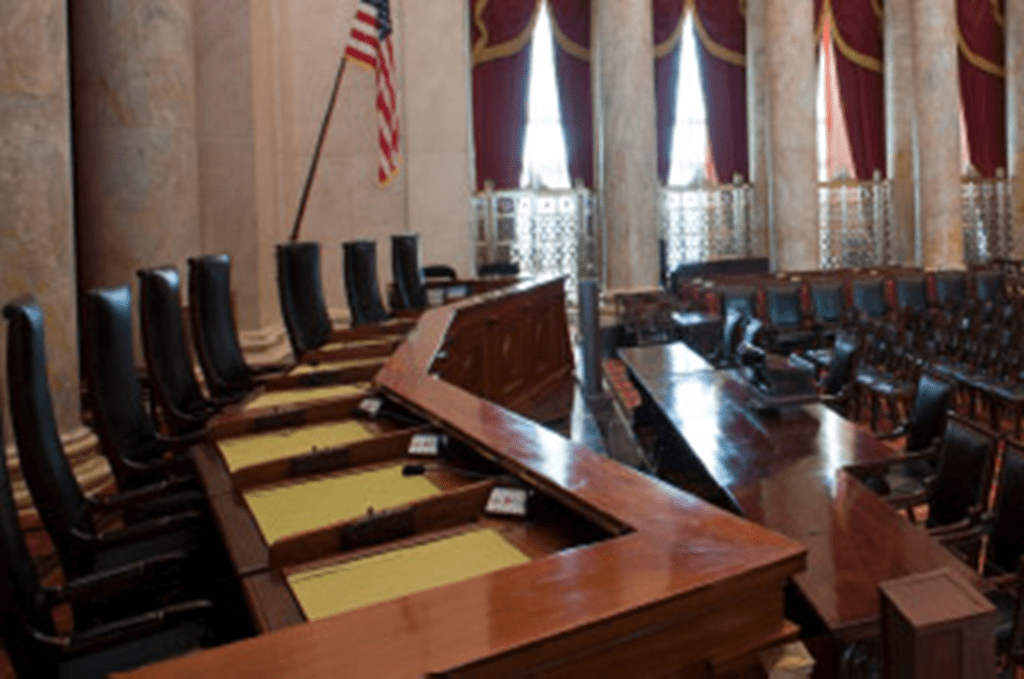
By Peyton Majors
Christian Action League
June 29, 2022
The U.S. Supreme Court on Monday handed advocates of religious liberty a landmark victory, siding with a high school football coach who had been fired for post-game prayers and overturning a 51-year-old legal precedent that had been used to limit religious freedoms.
The justices, in a 6-3 decision, ruled in favor of Joe Kennedy, who had lost multiple rounds in lower courts after he was fired as a coach of Bremerton (Wash.) High School for praying at midfield following his team’s games.
Justice Neil Gorsuch, writing for the court, ruled that the school district violated Kennedy’s constitutionally protected rights and discriminated against him on the basis of religion. Gorsuch was joined in the majority opinion by Chief Justice John Roberts and Justices Clarence Thomas, Samuel Alito, Brett Kavanaugh and Amy Coney Barrett.
“Mr. Kennedy prayed during a period when school employees were free to speak with a friend, call for a reservation at a restaurant, check email, or attend to other personal matters,” Gorsuch wrote. “He offered his prayers quietly while his students were otherwise occupied. … Both the Free Exercise and Free Speech Clauses of the First Amendment protect expressions like Mr. Kennedy’s. Nor does a proper understanding of the Amendment’s Establishment Clause require the government to single out private religious speech for special disfavor.
“The Constitution and the best of our traditions counsel mutual respect and tolerance, not censorship and suppression, for religious and nonreligious views alike,” Gorsuch wrote.
Rev. Mark Creech, executive director of the Christian Action League said: “In my estimation, this decision by the High Court is monumental – huge! It’s been quite a while since we’ve seen this kind of support for religious liberty – affirming the God-given right of religious expression without concerns about government reprisal or suppression. For approximately seven years a coach prayed silently after a game, he invited no one to join him, yet others did out of their own free agency, and the school system insisted he stop praying publicly. To treat the coach in this manner was not only unconstitutional, but also a manifestation of fear and hatred for religious expression.”
He continued, “The coach’s situation is reminiscent of the story of the prophet Daniel, who was thrown into the Lion’s Den because he honored God and prayed to him despite an unjust decree from the state not to do so. Just as Daniel was delivered from the mouths of the Lions, the coach, figuratively speaking, was delivered too and made a way for all of us to be protected.”
Gorsuch acknowledged that Kennedy’s post-game ritual began as a solo prayer and grew larger as other players asked if they could join. But Gorsuch added that Kennedy “never pressured or encouraged any student to join.”

“The prayers for which Mr. Kennedy was disciplined were not publicly broadcast or recited to a captive audience,” Gorsuch wrote. “Students were not required or expected to participate. And, in fact, none of Mr. Kennedy’s students did participate in any of the three October 2015 prayers that resulted in Mr. Kennedy’s discipline.”
The school district’s policy is unconstitutional because it fails to remain neutral, Gorsuch wrote. Such a policy is not neutral if it is “specifically directed at … religious practice.”
“Respect for religious expressions is indispensable to life in a free and diverse Republic — whether those expressions take place in a sanctuary or on a field, and whether they manifest through the spoken word or a bowed head,” Gorsuch wrote. “Here, a government entity sought to punish an individual for engaging in a brief, quiet, personal religious observance doubly protected by the Free Exercise and Free Speech Clauses of the First Amendment. And the only meaningful justification the government offered for its reprisal rested on a mistaken view that it had a duty to ferret out and suppress religious observances even as it allows comparable secular speech. The Constitution neither mandates nor tolerates that kind of discrimination.”
It was one of the most significant religious liberty decisions in years at the Supreme Court, largely because the justices overturned the so-called Lemon Test, which had been used since 1971 to determine if a law was constitutional. Under the three-prong Lemon Test, a law remained constitutional if it: 1) had a secular purpose, 2) neither advanced nor inhibited religion, and, 3) didn’t foster government “entanglement” with religion. The test was birthed out of the 1971 case Lemon v. Kurtzman.
Conservatives had repeatedly asked the Supreme Court to strike down the Lemon Test.
“This Court long ago abandoned Lemon and its endorsement test offshoot,” Gorsuch wrote in the first public acknowledgment of the court’s position. “The Court has explained that these tests ‘invited chaos’ in lower courts, led to ‘differing results’ in materially identical cases, and created a ‘minefield’ for legislators.”
Explaining the new standard, Gorsuch wrote, “In place of Lemon and the endorsement test, this Court has instructed that the Establishment Clause must be interpreted by ‘reference to historical practices and understandings.’”
Part of the new standard, Gorsuch added, includes “faithfully” reflecting “the understanding of the Founding Fathers.”
“An analysis focused on original meaning and history, this Court has stressed, has long represented the rule rather than some ‘exception’ within the ‘Court’s Establishment Clause jurisprudence,’” Gorsuch wrote.
The case was Kennedy v. Bremerton School District.
